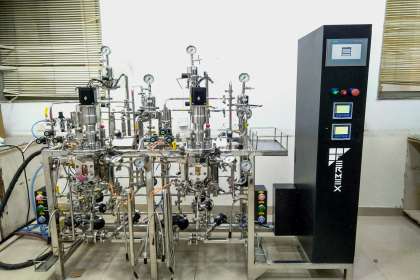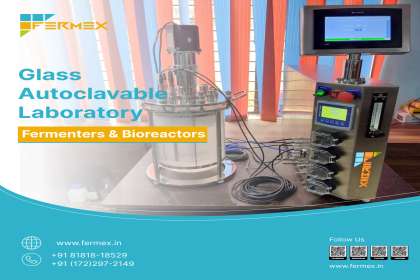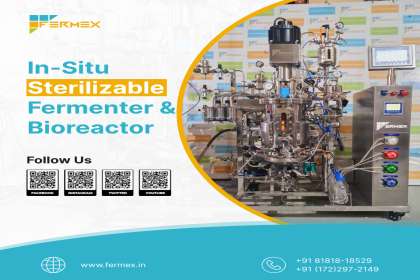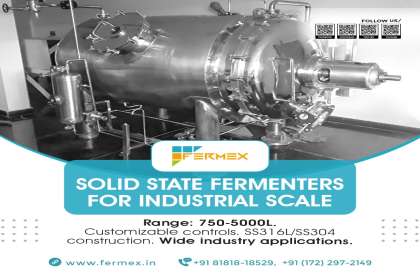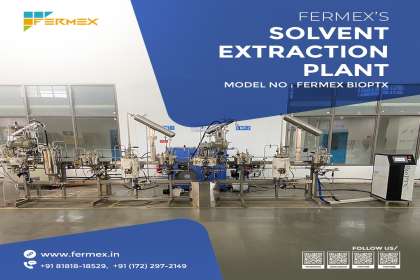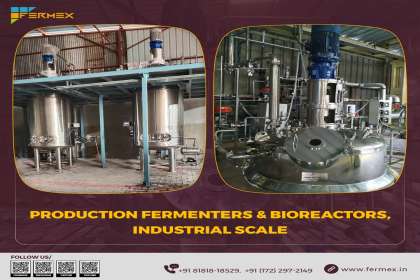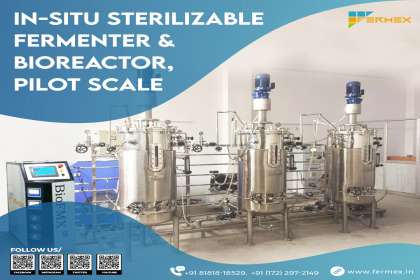
Introduction
Cheese, a beloved culinary delight, has been a part of human history for thousands of years. From artisanal methods to industrial processes, cheese production has evolved significantly. In recent times, fermenters have emerged as a game-changer in this industry, offering new opportunities for efficiency, consistency, and sustainability. This article explores the fascinating world of cheese production using fermenters and the positive impact it has on the cheese-making process.
The Art and Science of Cheese Production
Traditional cheese-making involves curdling milk and then separating the curds from the whey. The curds are further processed, shaped, and aged to develop distinct flavours and textures. This process demands meticulous control of various parameters like temperature, acidity, and time, which can be challenging for large-scale production.
What Are Fermenters?
Fermenters, also known as bioreactors, are vessels designed to support the growth of microorganisms, such as bacteria and fungi, under controlled conditions. While initially used in the pharmaceutical and biotechnology industries, the application of fermenters in cheese production is a relatively recent innovation.
How Fermenters Process Cheese Production
1. Precise Control: Fermenters allow cheesemakers to maintain strict control over crucial parameters like temperature, pH, oxygen levels, and agitation. This precision helps ensure consistency in the final product, eliminating variations that might occur with traditional methods.
2. Enhanced Fermentation: The controlled environment inside the fermenter promotes the growth of specific starter cultures, such as Lactococcus lactis and Streptococcus thermophiles. These cultures play a vital role in cheese development, contributing to flavour, texture, and aroma.
3. Accelerated Production: Fermenters facilitate faster fermentation, thereby reducing production time. This advantage is particularly significant for high-demand cheeses, allowing producers to meet market requirements more efficiently.
4. Waste Reduction: The closed-system nature of fermenters reduces the risk of contamination and minimizes waste generation. This leads to more sustainable cheese production with fewer resources wasted during the process.
5. Novel Cheese Varieties: Fermenters have opened doors for experimental and innovative cheese varieties. By manipulating the fermentation conditions and using different starter cultures, cheesemakers can create unique flavors and textures that appeal to a diverse audience.
Challenges and Adaptations
While the incorporation of fermenters in cheese production offers numerous benefits, it comes with its set of challenges:
1. High Initial Investment: Setting up a fully equipped fermenter system can be costly, especially for smaller-scale cheesemakers. However, the long-term advantages outweigh the initial investment. You can also take a guide from the best fermenter manufacturer.
2. Skill and Knowledge: Operators require specialized training to effectively use fermenters. Understanding the intricacies of the system and how it influences cheese production is crucial for success.
Conclusion
The integration of fermenters in cheese production has brought about a revolution in the industry, providing cheesemakers with greater control, efficiency, and flexibility. While traditional methods still hold value in artisanal production, fermenters have become indispensable for meeting the demands of modern cheese consumers.
As technology continues to advance, we can expect even more innovations in the world of cheese production. Embracing fermenters, cheesemakers are now better equipped to create an exciting array of cheese varieties that cater to diverse tastes, solidifying cheese’s position as a timeless delicacy cherished by food enthusiasts worldwide.








